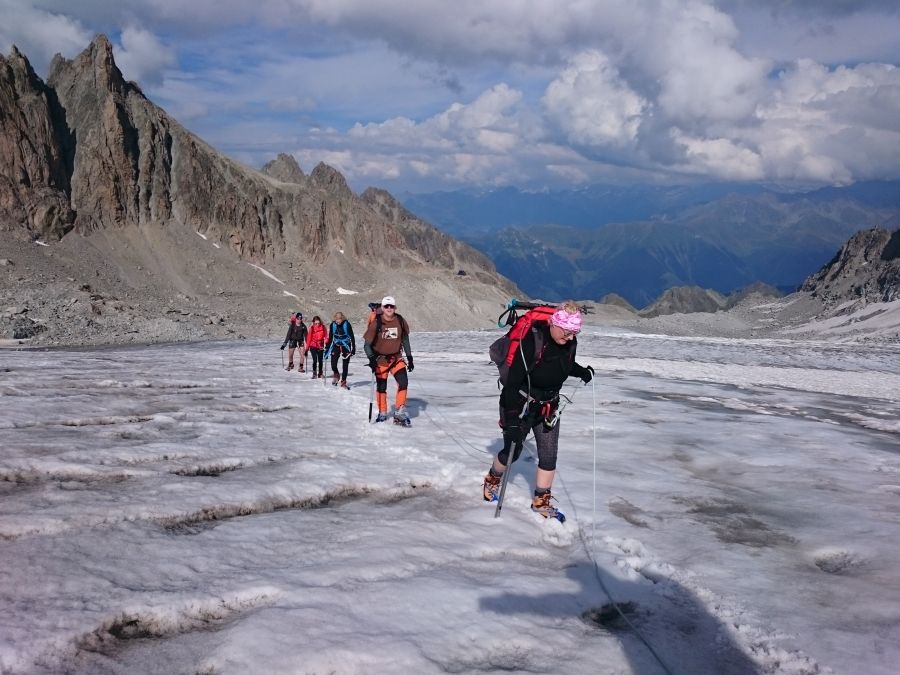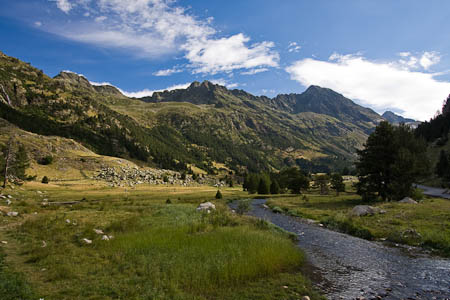Written by Susie Burt
29th August 2017

To enjoy your holiday to its best get yourself in good physical shape for the activity you are going to undertake. For all our trekking holidays you tend to move at a steady pace but for a long period of time, days in the mountains can be anything from 5-10hrs or more in length. Stamina and endurance are key factors to work on within your fitness training.
This kind of fitness is only achieved by starting well in advance of your trip, ideally 3-4 months out - thus giving yourself plenty of time of time to prepare. If you are unsure on how you should proceed then seek the advice of a professional fitness trainer at your local gym or join a club to help you get tips and motivation. The key aspect you need to have is good cardiovascular or cardiorespiratory fitness.
So what is cardiovascular fitness?
Cardiovascular fitness is the ability of the heart and lungs to supply oxygen-rich blood to the working muscles during sustained physical activity. As aerobic and anaerobic capacity increases, general metabolism rises, muscle metabolism is enhanced and your muscles become more able to adapt readily to varying demands. Each of these results of cardiovascular fitness/cardio respiratory conditioning will have a direct positive effect on muscular endurance, and an indirect effect on strength and flexibility. To facilitate how a person delivers oxygen to their working muscles, they need to train, or participate in activities that will build up the energy stores needed for their sport. This is referred to as metabolic training. What’s the best way to get fitter? Sadly fitness does not come free and easy with a gym membership, neither is it sold at the supermarket!!! Fitness is only gained by hard graft and actually pushing your body beyond its normal limits which will increase your fitness. Our bodies are wonderful machines and they get used to the things we do pretty quickly; and so to better your fitness (whether it’s speed, strength, endurance) you have to run, cycle, row further, faster, harder for longer.
Panic fitness 3 weeks before won’t work and neither will running on the treadmill for 30mins in the gym at a steady easy pace twice a week… Running to the pub for a pint also won’t cut the mustard! Yes, it hurts and its difficult to make yourself do it practically when it’s cold, wet and rainy outside but going out in these conditions makes it easier if you encounter them on your holiday and have to keep going to get to the next hut in driving rain, snow and cold windy conditions. By keeping your training varied and interesting it helps to keep it fun. Go out with others to inspire you, listen to some music if you get bored. If you run, try to run off road on the trails: it’s more varied then pounding the pavements and it helps with your movements skills and co-ordination on varied terrain (and a little gentler on the knees!). If running is not your thing, and you prefer a team sport, then why not try tennis, rugby, football, netball, squash or group circuit training can give you a great cardio work out and improve your movement skills, core fitness and its fun to work out with others. Work on your core fitness – that’s your stomach and back muscles. It’s easier to carry a heavy rucksack if these muscles and strong, its stops you slouching forward when going uphill allowing you to breath more easily and enjoy the view! Do press-ups, pull-ups, the plank and light weights in the gym to improve these areas.
A bit of upper body strength is also useful, if you plan to walk with poles then the constant pushing back on them will make your upper arms and should ach if they are not used to it. Practise walking/jogging downhill as well as putting in the time going up the hills. Strangely, walking downhill is more stressful on your body and likely to lead to more pain in your joints and muscles than uphill, so don’t forget to train for the down too. Hike in the hills - plan a few weekends to Scotland, Wales, the Lakes, the Peak Disrict - and do 2 days of walking. Test your kit and get to know your kit, wear-in your boots, use your poles and get in some endurance training carrying your rucksack with the kit it in you need for the Alps. This will help you to work out what items are essential and what you can afford to leave behind. Simple things like changing your layers in a cold, windy, exposed environment are best practised beforehand than when you do it for real: it’s easier to learn the gentler way rather than when conditions are more arduous.
If you have trekked in the Himalayas or Africa then this is a great start, but remember there are no porters in the Alps to help carry your kit! It’s up to you carry all need for the journey so if you’re doing our Haute Route Trek or Italian High Level Route remember you have to carry all need in one 35-40 litre rucksack for the week. Don’t underestimate the weight – you’re looking at around 12-15 kilos, so quite a difference from a light daypack! Here are some frames of reference to help you judge your fitness and give you an idea of ‘how fit you need to be’.
Don’t panic that you have to be fit enough to finish an Ironman Triathlon or race against Usain Bolt, as you don’t but an above average level of fitness is a necessity:
• If you are a long distance runner e.g. half marathon or are a regular mountain or road biker riding 2 or 3 times a week for up to 4-5hrs or train for and enjoy other similar sporting activities, then you can stop reading now, just keep up the good work!
• If you have run a few 10ks, ride a bike at the weekends for a few hours or go to the gym for a weights and cardio session then you will be fine too but focus on some long slow walking or running to build your endurance levels a little.
• If you have done very little apart from the occasional 30 minute jog, short cycle ride (mountain bike or road) or you occasionally go to the gym after work – then you have some work to do but fear not you can attain the fitness levels you need but you do need to increase the amount of exercise you do each week and do this well in advance of your trip (ideally 3-4 months out).
About 2 weeks before your holiday remember to reduce the level of exercise you do (tapering), get plenty of rest and eat well so you arrive refreshed and ready to enjoy your trip to the maximum!
Susie
 Off-Piste
Off-Piste Ski Touring
Ski Touring Via Ferrata
Via Ferrata Ice Climbing
Ice Climbing Alpine Glacier Trekking
Alpine Glacier Trekking Worldwide Trekking
Worldwide Trekking




 Travel Website Development
Travel Website Development